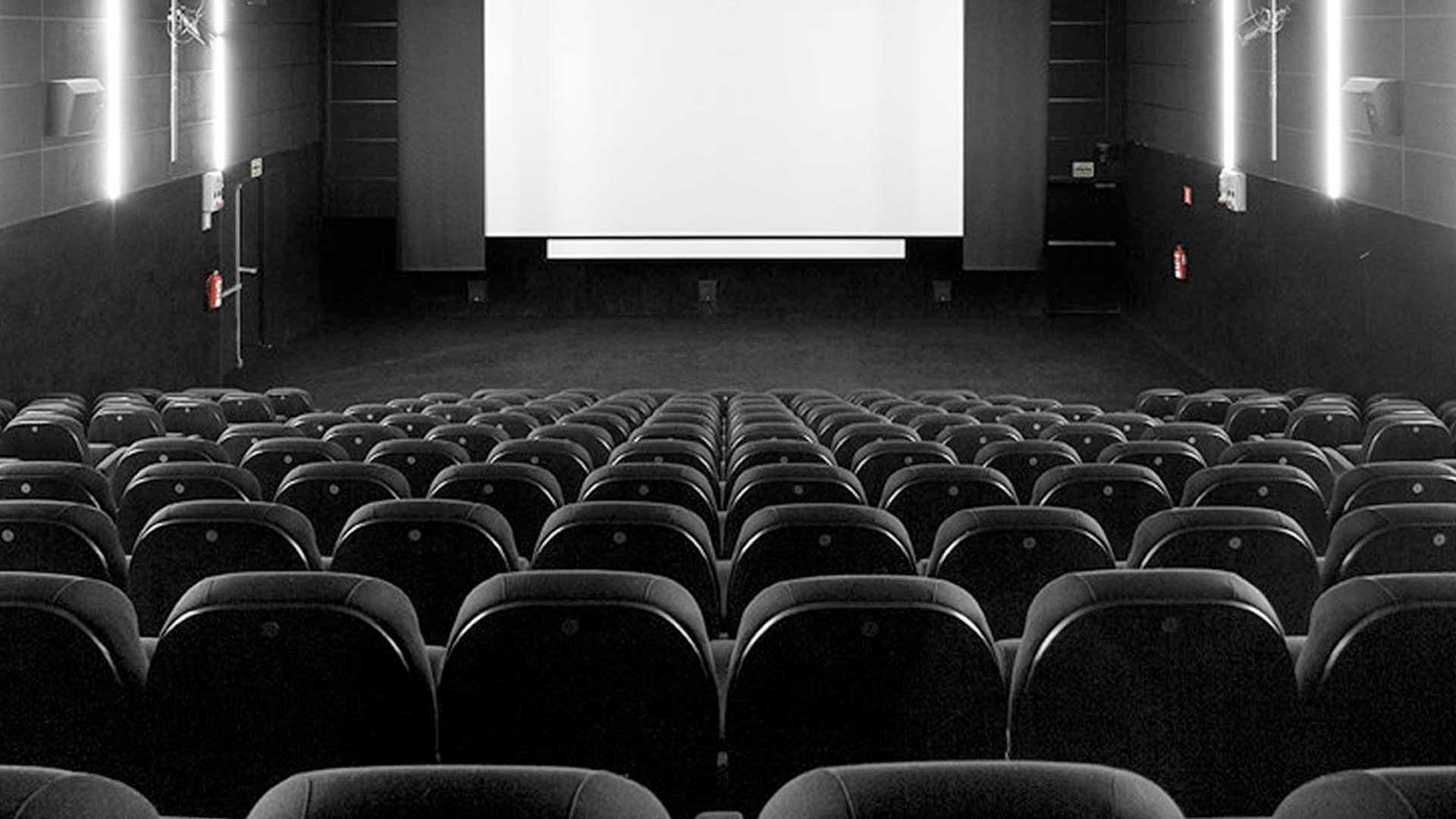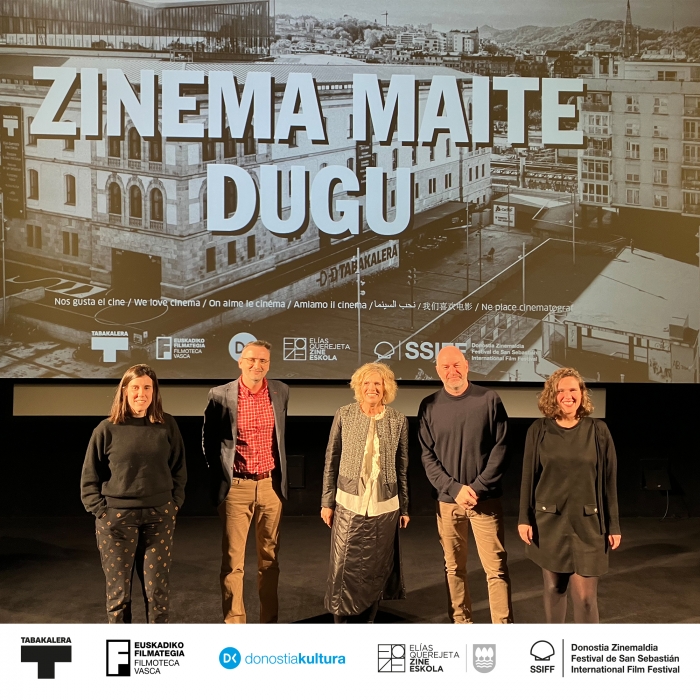The cinema pass and tickets for the screenings will be available from 15 December on the website and at the Tabakalera Information Point.
Tabakalera presents the new 2024 film season, which will begin on 11 January, with the proposal drawn up by the organisations that programme on the Tabakalera shared screen: Donostia Kultura, San Sebastian International Film Festival, Basque Film Archive, Elías Querejeta Zine Eskola and Tabakalera.
One of the main objectives of the 2024 programme is to attract new audiences to the cinema in the International Centre for Contemporary Culture. With this in mind, specific programming proposals have been designed with the participation of UPV/EHU, EQZE and others.

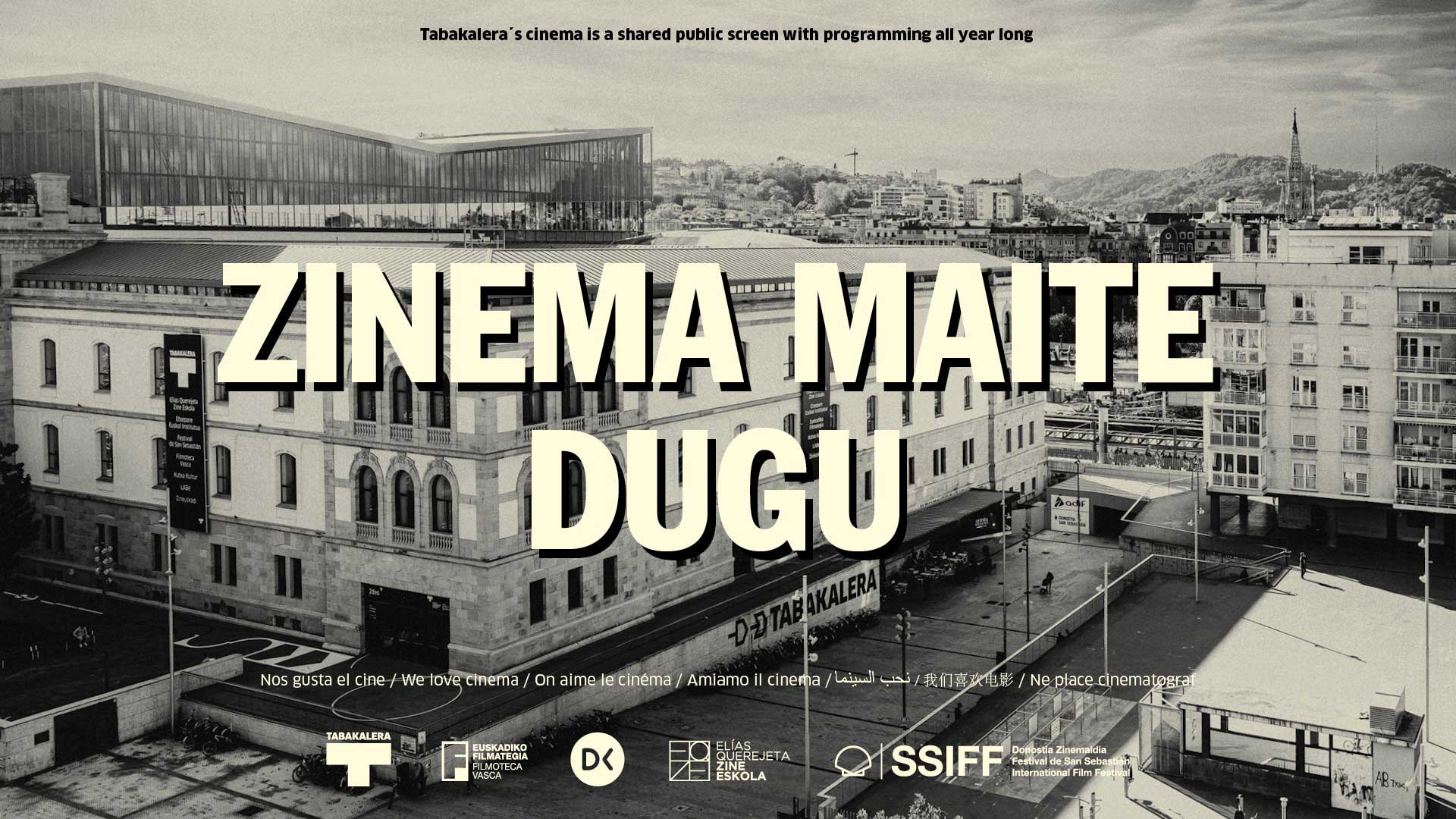
UPV/EHU programming group
From Thursday 25 January until June, a group of UPV/EHU students will be responsible for the programming of the Tabakalera cinema once a month. The main theme of the cycle will be the soundtracks of films and the first one they have chosen is Blade Runner by Ridley Scott (1982). The aim of offering the screen to reflect the tastes of UPV/EHU students is to generate new audiences for the cinema.
Meanwhile, the group of students taking the Curatorial speciality of the EQZE 2023-2024 course is working collectively on the definition of a public film programme that will be concentrated in the week beginning on 8 April. This programme, organised together with Tabakalera, will be the result of reflection and debate on film curatorship and programming.
The Tabakalera cinema screen will also be used to promote and present to the audience in the theatre the audiovisual talent that comes to the centre through its various residency programmes and calls for proposals, promoted by the organisations that make up the shared screen, and which have progressively built up a system of support for creation, with initiatives such as NEST, Noka and Ikusmira Berriak.
Nosferatu: Contemporary Western USA
The cycle Nosferatu, Contemporary Western USA 1962-2021 will begin on 17 January with the screening of Ride the High Country (1962), directed by Sam Peckinpah. The cycle, organised by Donostia Kultura and the Basque Film Archive, with the collaboration of Tabakalera and the Institut Valencià de Cultura - Filmoteca de la Generalitat Valenciana, will run from January to December 2024.
The cycle takes us through six decades of revisionist, dirty westerns with European influences: the approach of the filmmakers from the "generation of violence" (Richard Brooks, Don Siegel) and the "new Hollywood" (Robert Altman, Michael Cimino); the different attempts to revitalise the genre in the 1980s – Silverado (Lawrence Kasdan, 1985) – and 1990s – Dances with Wolves (Kevin Costner, 1990); the impetus provided by the great critical and commercial success of Unforgiven (Clint Eastwood, 1992); and all the way up to the most recent works by Kelly Reichardt – First Cow (2019) – and Jane Campion – The Power of the Dog (2021).
The programme for the first quarter of the year includes films directed by filmmakers such as John Ford, Henry Hathaway, Richard Mulligan, John Sturges, Richard Brooks and Sam Peckinpah, featured in a double bill of the classics Ride the High Country and The Wild Bunch.
The cycle will be accompanied by the publication of two books, one in Spanish and the other in Basque. The first, Western USA 1962-1992, no. 20 in the Nosferatu Collection, has been coordinated by Carlos Aguilar and Pablo Fernández, and will be published at the beginning of the year. The second, coordinated by Iñigo Marzabal, No. 12 in the Nosferatu Bilduma, will be published at the end of 2024.
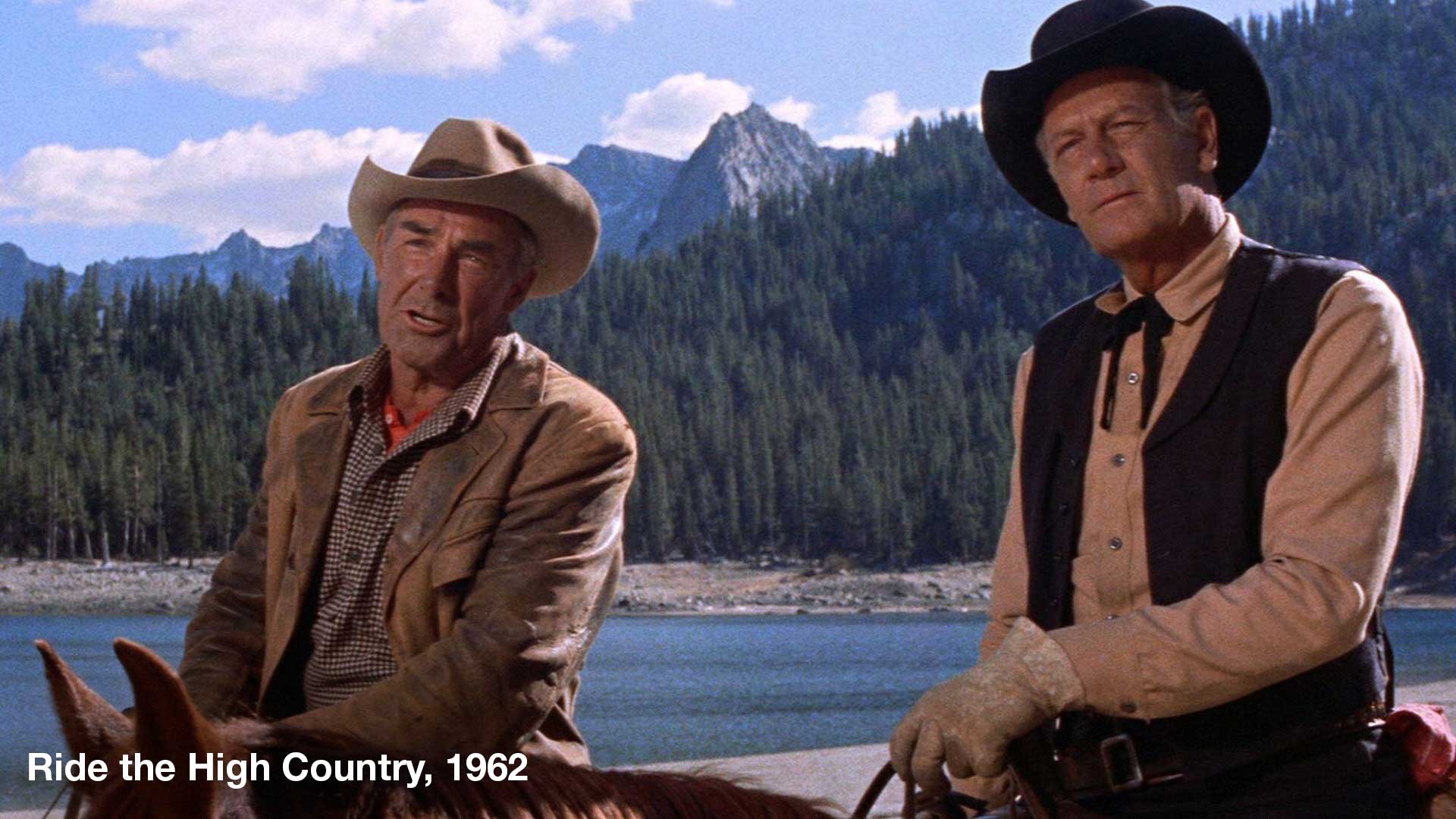
Seventh edition of Cinema and Science
The Basque Film Archive will begin the year with the seventh edition of the Cinema and Science cycle, which it organises in collaboration with the DIPC (Donostia International Physics Center) and the San Sebastian Film Festival. This year's edition will begin with the screening of Oppenheimer (Christopher Nolan, 2023). The event will take place on 11 January (Thursday) and will be presented by the physicist and president of the DIPC, Pedro Miguel Etxenike, an expert on the figure of Robert Oppenheimer. The talk will begin at 18:00, while the screening will be at 19:00.
This is a cycle that uses the universality of cinematographic language to show the depth of scientific thought, and whose objective continues to be the transmission of cinematographic and scientific culture. The ten films that will make up the cycle will be announced at the beginning of January.
In spring, the Klasikoak cycle will take place, which will bring back masterpieces
from the history of cinema, and July will see the seventh edition of Jazzinema. 2024 will end with Basque Women Filmmakers IV, a meeting to highlight the work of Basque women filmmakers.
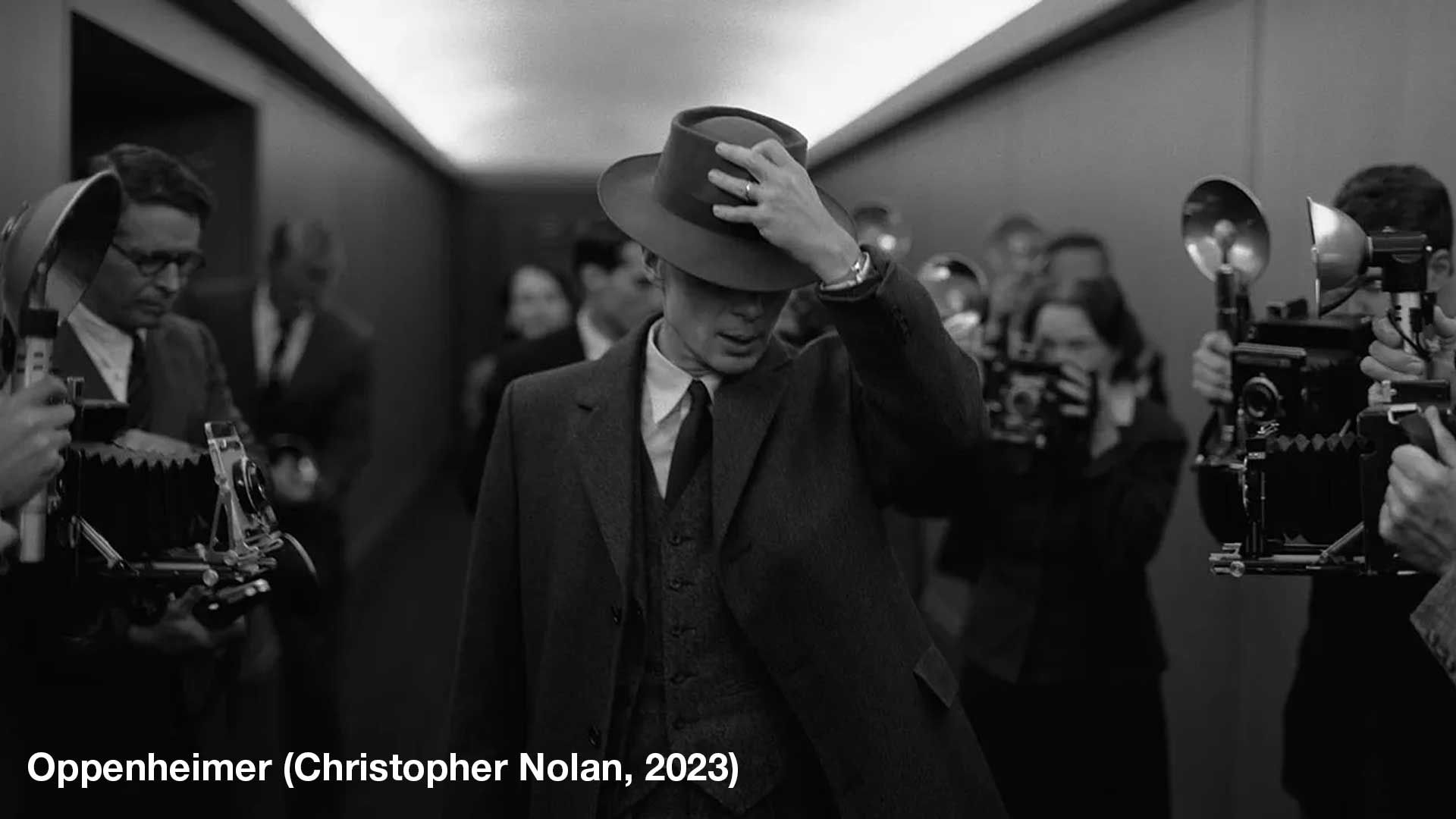
Marguerite Duras and Bas Devos
Since its establishment, Tabakalera has been characterised by promoting the crossover between different creative disciplines. Original Soundtrack, the first cycle of this type began several years ago, and is a cycle in which music and film are the protagonists. Starting in January, we will see the beginning of a new crossover between film and literature, which will focus on the figure of the writer and filmmaker Marguerite Duras. The cycle will consist of a monthly film session related to the writer and filmmaker, together with a presentation by a writer. Miren Agur Meabe will be the first guest of the cycle and will offer a session on the 1977 film Le Camion on 12 January 2024.
Another of the characteristics of the Tabakalera shared screen film programme is that it provides a space for contemporary cinema presented on the international festival circuit. For this reason, from 13 January to 24 February, the entire filmography of Belgian director and screenwriter Bas Devos will be presented. His first two feature films, Violet and Hellhole, premiered at the Berlinale. His third film, Ghost Tropic, was screened as the closing film in the Directors' Fortnight at the 2019 Cannes Film Festival. His latest feature film, Here, won the Encounters section at the Berlinale and was in the Zabaltegi-Tabakalera section at the last San Sebastian Film Festival.
In addition, Tabakalera will continue to promote the bridging of the gap between filmmakers and spectators, and will do so thanks to projects such as Talk cinema, which proposes a meeting space for directors to chat in the cinema about the creation process of their films. The season will involve the participation of Fermín Muguruza next Sunday 17 December, with the screening of Bidasoa 2018-2023, and will continue in 2024 with Jaione Camborda, Isabel Herguera, Ion de Sosa, Celia Rico, Alberto Martín Menacho and other guests.
Finally, there will be new editions of family cinema with Kameleoiak Gara! and the Contemporary cinema cycle.

Sustainability, short films, Artxiboa and Donostia Awards: fourth year of "Zinemaldia + Plus"
For the fourth year running, the San Sebastian Film Festival will be programming on the shared screen through the Zinemaldia + Plus cycle, an annual focus linked to the programmes and contents of Z365, the San Sebastian Film Festival's year-round festival. On 10 February there will be a session related to the sustainability project, organised in collaboration with the European Climate Foundation, which will reflect on alternative narratives related to climate change. The session on 6 April will be linked to short films, while 15 June will be devoted to Artxiboa -the San Sebastian Film Festival historical archive- and in particular to the presentation of some of the research resulting from the first edition of the José Ángel Herrero-Velarde grants. Finally, in September, the traditional screenings connected to the filmography of the edition's Donostia Awards will take place.
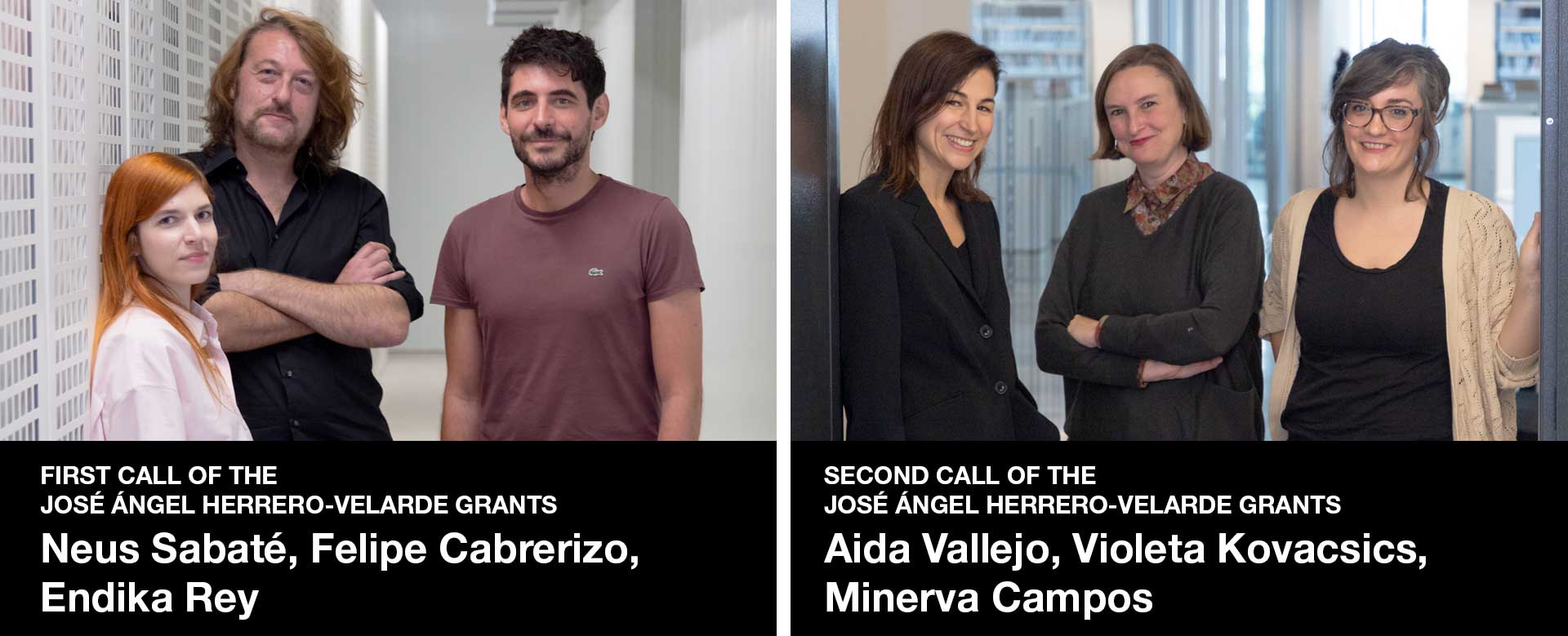
2024 cinema pass and ticket sales
The Tabakalera cinema pass is available again next year, and for €120 will offer users entry to 40 films from among all those programmed by the partner institutions of the shared screen over the course of 2024: Donostia Kultura, Basque Film Archive, Elías Querejeta Zine-Eskola, San Sebastian International Film Festival and Tabakalera, with the exception of films programmed during the San Sebastian International Film Festival 2024.
Once again this year, purchase of the pass includes one of the two publications from the Nosferatu Collection: Polar frantziarra or Western USA 1962-1992.
The pass can be purchased from 15 December 2023 at 12:00 noon until 31 January 2024 at 12:00, either on the Tabakalera website or at the centre's information point. The sale of ordinary tickets for the January screenings will also start on the same date and time and at the same venues.
The pass can be used from 1 January 2024 to 31 December 2024 (inclusive), and can be managed via the Tabakalera website and at the centre's information point, where you can undertake the following actions: purchase the pass, send the pass as a gift to someone else, buy tickets for films with the pass discount, and check the available balance.
All the information related to the 2024 cinema pass and the screenings scheduled for January can be found on the Tabakalera website.
